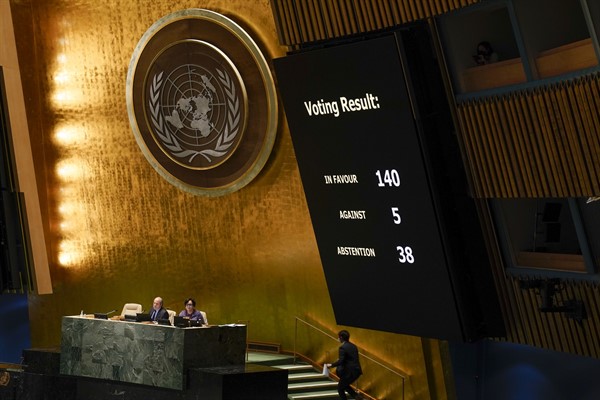When a state abstains on a vote concerning a crisis at the United Nations, it may look like it is avoiding hard choices about the problem at hand. But U.N. diplomacy is rarely that simple. When diplomats cast an abstention in the Security Council or General Assembly, they are often sending subtler signals about their interests and priorities. In recent weeks, U.N. members from China to Burkina Faso have abstained on a series of votes in U.N. forums on the war in Ukraine, or just not voted on them. What do such ambiguous votes and nonvotes mean?
To see how states’ abstentions at the U.N. can have varying political meanings, it is useful to think back to the Libyan conflict in 2011. That March, the U.S., Britain and France pushed through a Security Council resolution authorizing military action to protect vulnerable Libyans. Russia abstained on it, as did China, and Western officials welcomed their abstentions as a positive gesture that allowed the resolution to pass. But Germany, then an elected member of the council, also abstained, and Berlin’s allies in Washington and other NATO capitals saw this as a betrayal.
In U.N. votes on the Ukrainian war to date, Kyiv and its supporters have enjoyed majority support. Of the organization’s 193 member states, 141 backed a General Assembly resolution condemning Moscow’s aggression on March 2. Only four countries—Belarus, North Korea, Eritrea and Syria—backed Russia. But from the outset of the war, some big players have sat on their hands.

